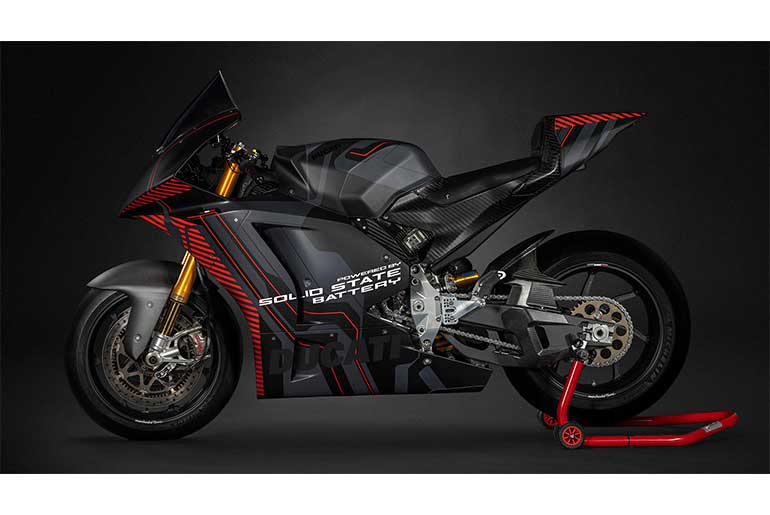With the FIM MotoE World Championship set to pause at the end of the 2025 season, Ducati reaffirms its commitment to advancing alternative technologies beyond internal combustion.
The Ducati MotoE project, originally launched to accelerate internal development, continues to serve as a vital platform for building in-house expertise in electric mobility. This strategic initiative positions Ducati to respond swiftly and effectively when battery technology evolves to a point where it can support the creation of an electric road bike that fully embodies the performance, design, and emotion synonymous with the Borgo Panigale brand.
Ducati remains focused on innovation, sustainability, and readiness for the future of motorcycling.
During these years of the MotoE World Championship, the Borgo Panigale manufacturer has collected a large amount of data thanks to the 18 riders on the grid who have battled it out in every race. In three years of development, the evolution of the cells has allowed for a weight saving of 8.2 kg in the battery pack of the V21L prototype—a significant reduction, but still inadequate to make the ‘electric MotoGP from Borgo Panigale’ as light as an internal combustion racing bike with adequate range.
For this reason, among its various research and development activities, the Borgo Panigale-based company is working with Volkswagen Group companies to continue studying and testing new technologies to create battery packs with higher energy density. On September 8th the first prototype of the V21L was presented at the IAA Mobility in Munich, equipped with QuantumScape solid-state batteries and developed in collaboration with Audi and PowerCo. This motorcycle represents a first step in development and confirms Ducati’s ongoing research into alternative technologies to internal combustion.



